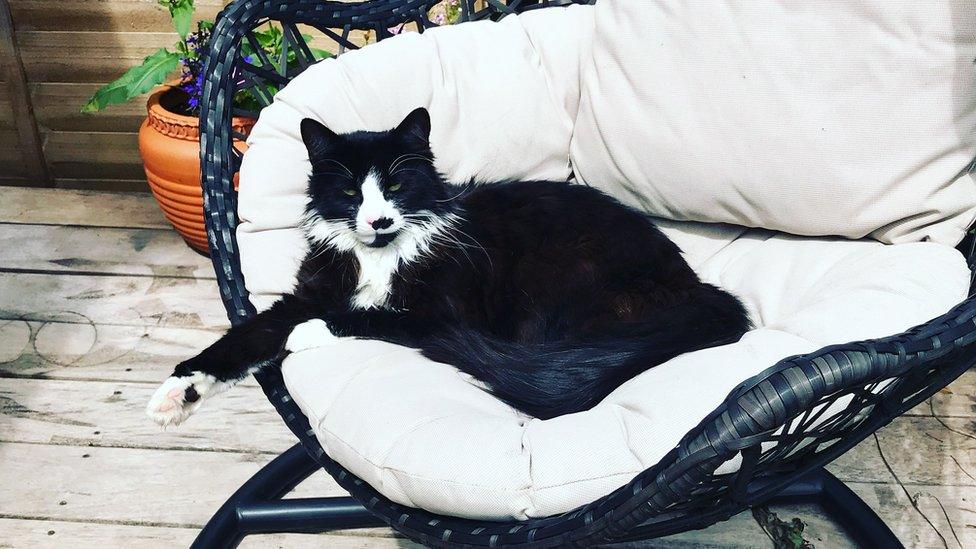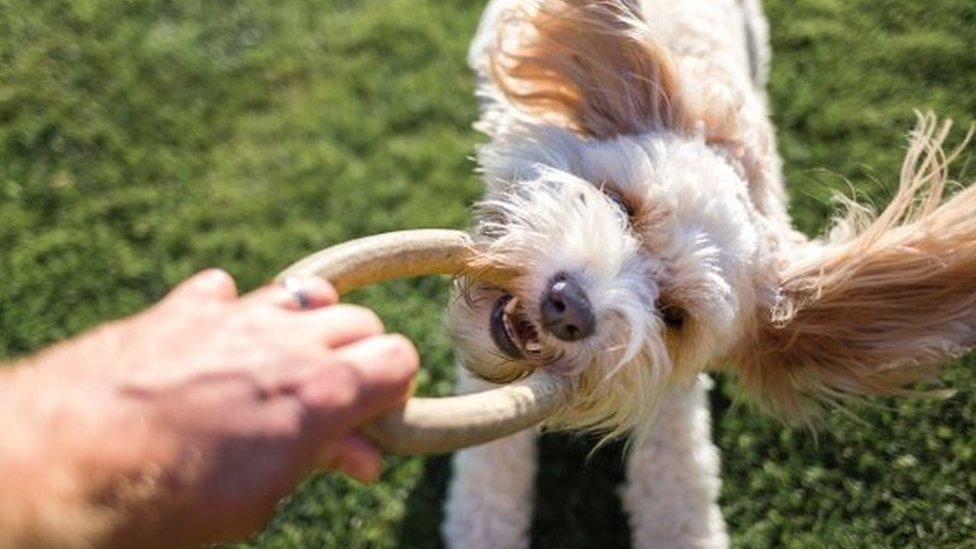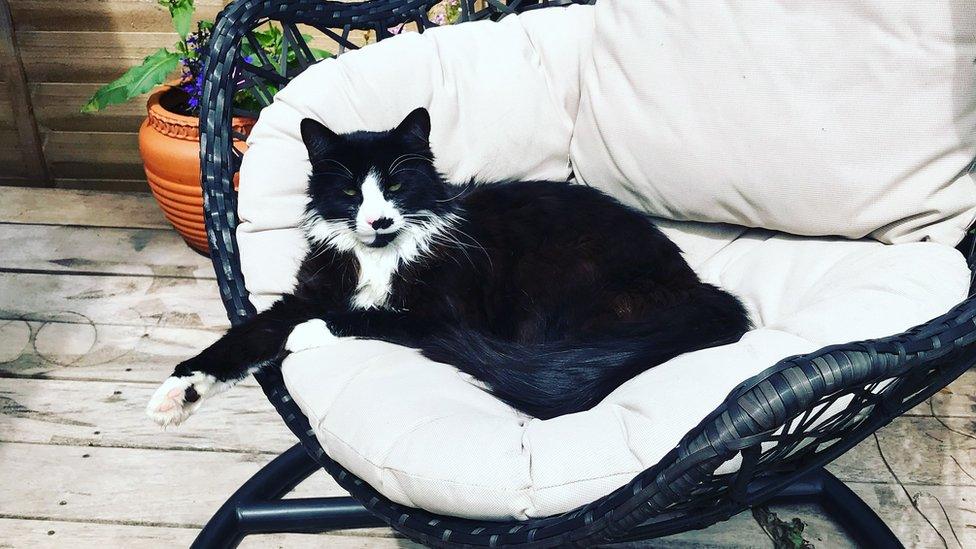Pet database still plagued with problems, say users
- Published

Smudge is one of millions of cats registered on the database
Problems with a website that holds the details of more than nine million microchipped pets across the UK are persisting, according to users.
In March, a database upgrade on Petlog left many owners unable to see details of their registered pets.
Customers report the issues are continuing three months later.
Petlog said that all records remain safe and secure even if users can't immediately view them.
But some of the site's users are angry and frustrated. Dog-owner James Bricknell told the BBC he had repeatedly filled in forms, as requested by Petlog, in order to be reunited with his dog's details but had heard nothing back.
Eventually he was told his details were incorrect and he needed to fill in a "keepership form". He was asked to pay a £17 fee even though he had updated his details on the website when he changed address.
"They suggest it is your fault. They are either dreadfully understaffed or the issue is far worse than they are letting on," he said.
On various pet-related Facebook groups, the BBC found a host of other complaints including:
a cat-owner reporting she went on the site to reregister her pet and found she had acquired a horse
a dog-owner saying their dog was no longer registered but a dead cat was on the system
people who had an account but Petlog no longer had a record of it
people finding email and passwords not being recognised
reports of people being able to see the details of other pet owners

Petlog, which is managed by the Kennel Club, told the BBC: "Losing a pet is traumatic and we give our absolute assurance that all pets are safely linked to their named owners on our Petlog database, so that they can be safely reunited.
"A very small proportion of customers will be unable to immediately view their pet's details after setting up a new online account, as we need to verify their details before making the record visible online, but this is no way affects the information held on our database or our 24/7 reunification line services."
It added that if customers were continuing to have problems, that was probably because the pet was registered under a different name, either that of their spouse, the breeder or rescue centre, or the previous owner.
Errors with information provided by whoever microchipped the pet could also mean that "details are not correct".
And it added: "We experienced a couple of rare instances when the system launched a third party implanter inputting on to a pet's record an email address that belonged to another Petlog customer, which resulted in the wrong customer record pulling through.
"We immediately apologised and put in place measures to ensure that the wrong customer record would no longer surface in the event of a similar third party error. We give our reassurance that this in no way affected our ability to reunite the pet and owner in question. We also contacted the ICO about this as a precautionary measure and it was decided that no further action is required."
The Information Commissioner's Office confirmed to the BBC it had received a small number of complaints and had offered advice to the Kennel Club.
On Petlog's Facebook page, it said its customer service team were "working through high volumes and enquiries and resolving issues as quickly as possible".
Microchip databases
Ian Webb, who runs Dun-Roamin', a rehoming centre for dogs, said he believed the website has deteriorated over recent years.
"Every so-called improvement has, in my opinion, as a behavioural consultant and a rescuer, made everything worse and far less secure and reduced the chances of reunification in the event of your pet going missing.
"The most recent update has given me doubt over every chip I have ever registered over the past 14 years."
There are currently 15 Defra-compliant pet chip databases in the UK. All are connected to veterinary surgeries around the country in order to allow vets to check whether a lost pet is registered to an owner.
For a short while Petlog was not able to talk to one of these databases, but the issue has since been resolved.
Defra told the BBC: "We are a nation of dog-lovers, and microchips are often the only hope of reuniting people with their pets. Our databases are all connected, so if a lost pet is scanned, the microchip number is all that is needed to identify it and reunite it with its registered keeper.
"We are currently reviewing the microchipping regulations, which will consider if any changes to the way the databases operate are needed, and will publish proposals this year."
Related topics
- Published26 March 2021
